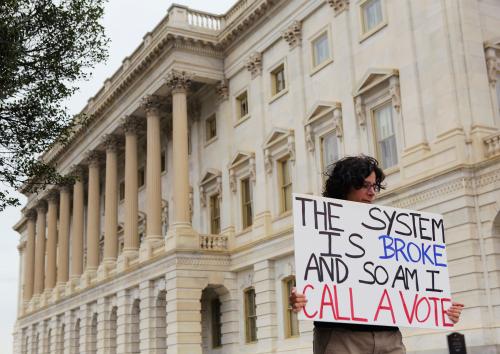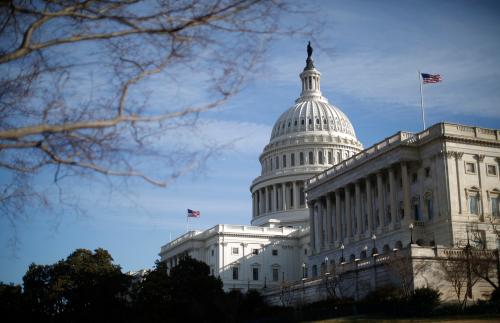This piece originally appeared in CNN Business on February 7, 2019.
Now that the federal government has reopened, lawmakers ranging from House Speaker Nancy Pelosi to US Senator Chuck Grassley have expressed support for legislation that would prohibit future shutdowns.
Congress is taking the right steps in proposing an “automatic continuing resolution,” which would ensure that the government stays open even if appropriations bills are not passed. But it needs to address some possible pitfalls early on.
First, an automatic continuing resolution must stipulate that, in the absence of appropriations bills, spending would continue at the same level — adjusted for inflation and caseload. A new Republican bill that would prevent future shutdowns builds in automatic spending cuts over time. But the focus on spending cuts is not only misplaced, since the goal is to keep government open; it is also ironic, since it cuts the very government it is supposedly keeping open. It appears simply to be a backdoor way to cut spending without ever holding a vote.
What’s more, discretionary spending is already slated to decline over the next year because of spending caps put forth in previous legislation and because the 2018 budget deal only covered two years. Spending cuts could slow the economy, limit the effectiveness of government services and place increasing pressures on military budgets.
Second, some very knowledgeable critics are concerned that an automatic continuing resolution would dull policymakers’ willingness to address pressing issues and let them abdicate their age-old responsibility to appropriate funds. Of course, an automatic continuing resolution does not preclude policy changes; it just stipulates that if lawmakers can’t reach an agreement on a new policy, the government stays open. This is standard operating procedure for more than 60% of government spending, including Social Security, and almost the entire tax system.
In any case, the new rule should give lawmakers strong incentives to continue to pass appropriations bills. Senator Mark Warner proposes that members of Congress and the president’s executive office not get paid until they enact a new appropriations bill. Lawmakers could go even further by proposing a rule that Congress cannot be out of session if the government is not funded.
Third, an automatic continuing resolution should sunset after a few years, because it might have unforeseen consequences and might otherwise be hard to reverse. Early 2021 would be a good expiration date, since it would get us through the current administration.
If Congress were doing a great job managing the budget, it would make sense to ignore the automatic continuing resolution. But we’ve tried the current process for 45 years and appropriations bills have often gone unenacted, leaving the government to rely on short-term, band-aid solutions. This creates significant uncertainty, which curtails individuals’ and business’ ability to plan ahead and limits the usefulness of government programs.
The recent government shutdown hurt the economy and took a significant human toll. It was not the first shutdown, but with any luck, it could be the last. An automatic continuing resolution creates some trade-offs for policymakers, but with appropriate safeguards and incentives, it would keep the government open while still encouraging policymakers to address key issues.






Commentary
Op-edShutdowns hurt the people the government is meant to protect. Here’s how to end them
February 14, 2019